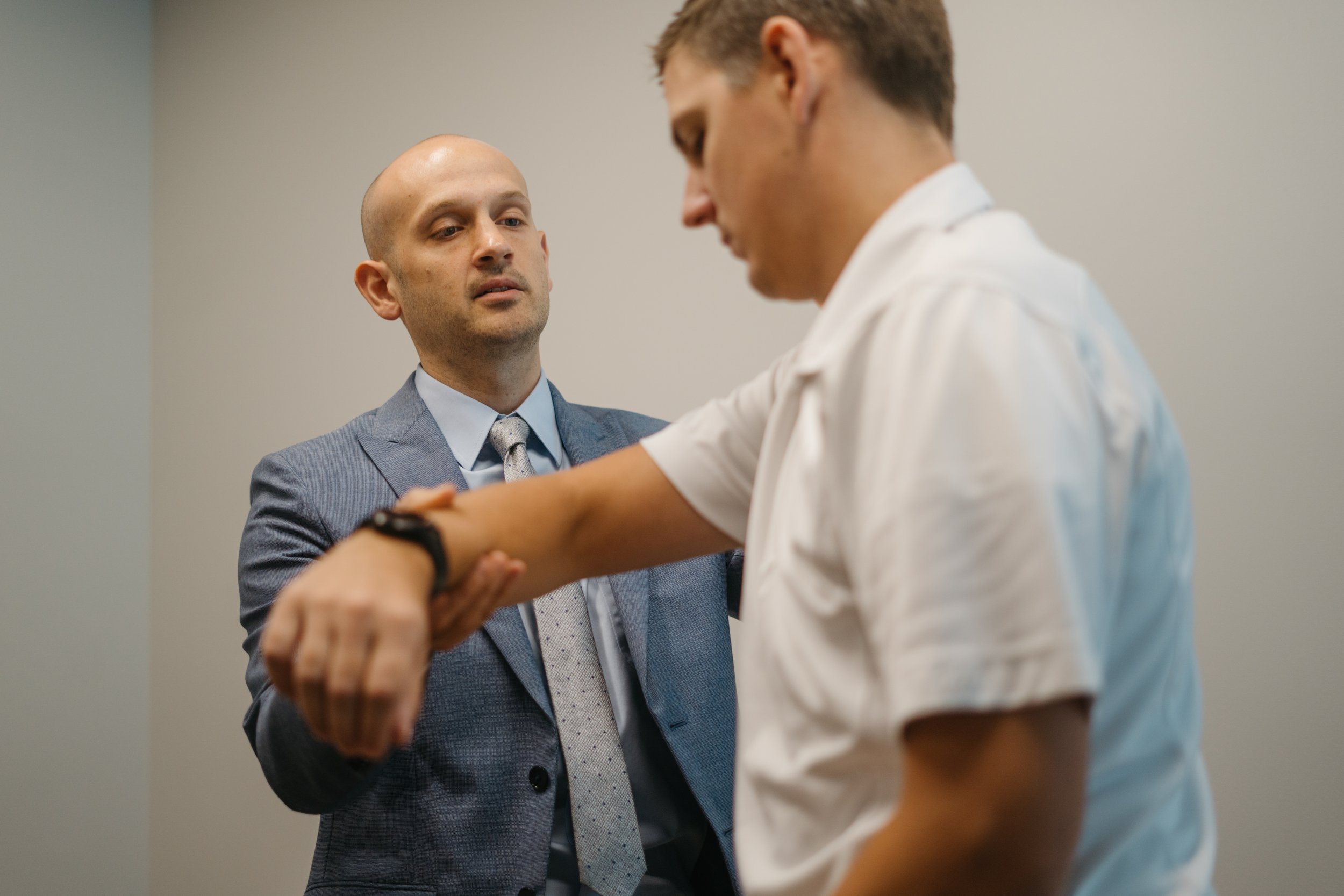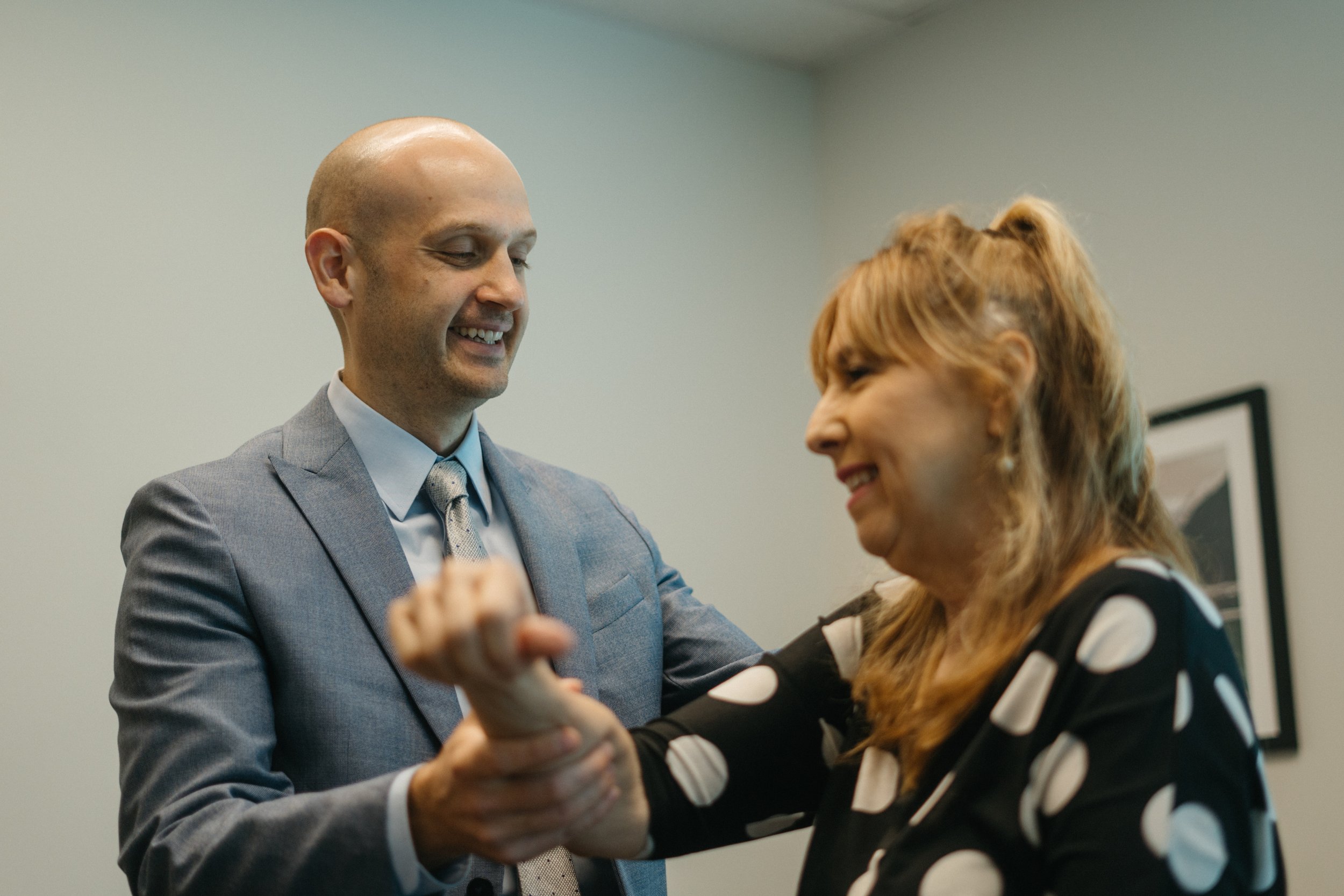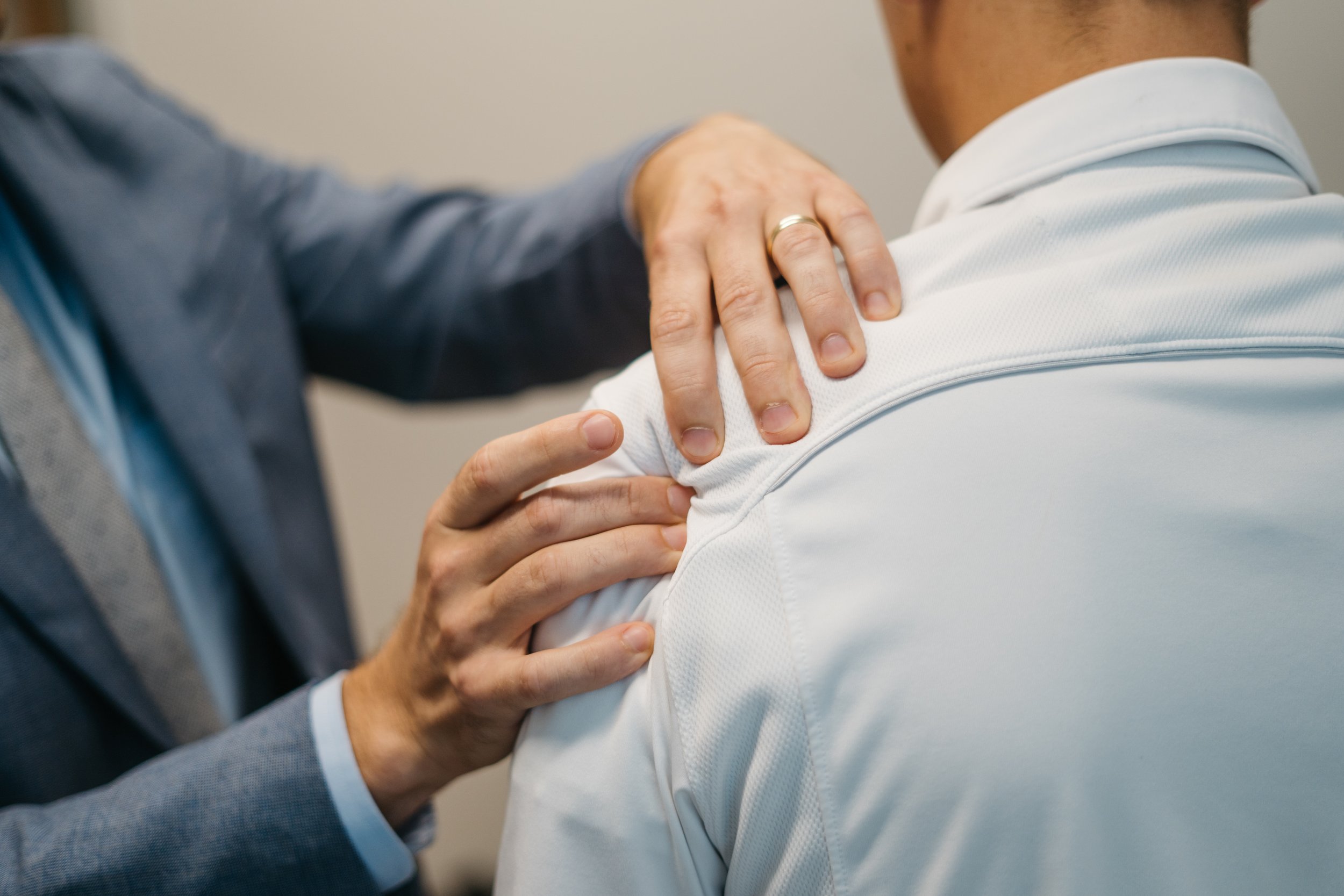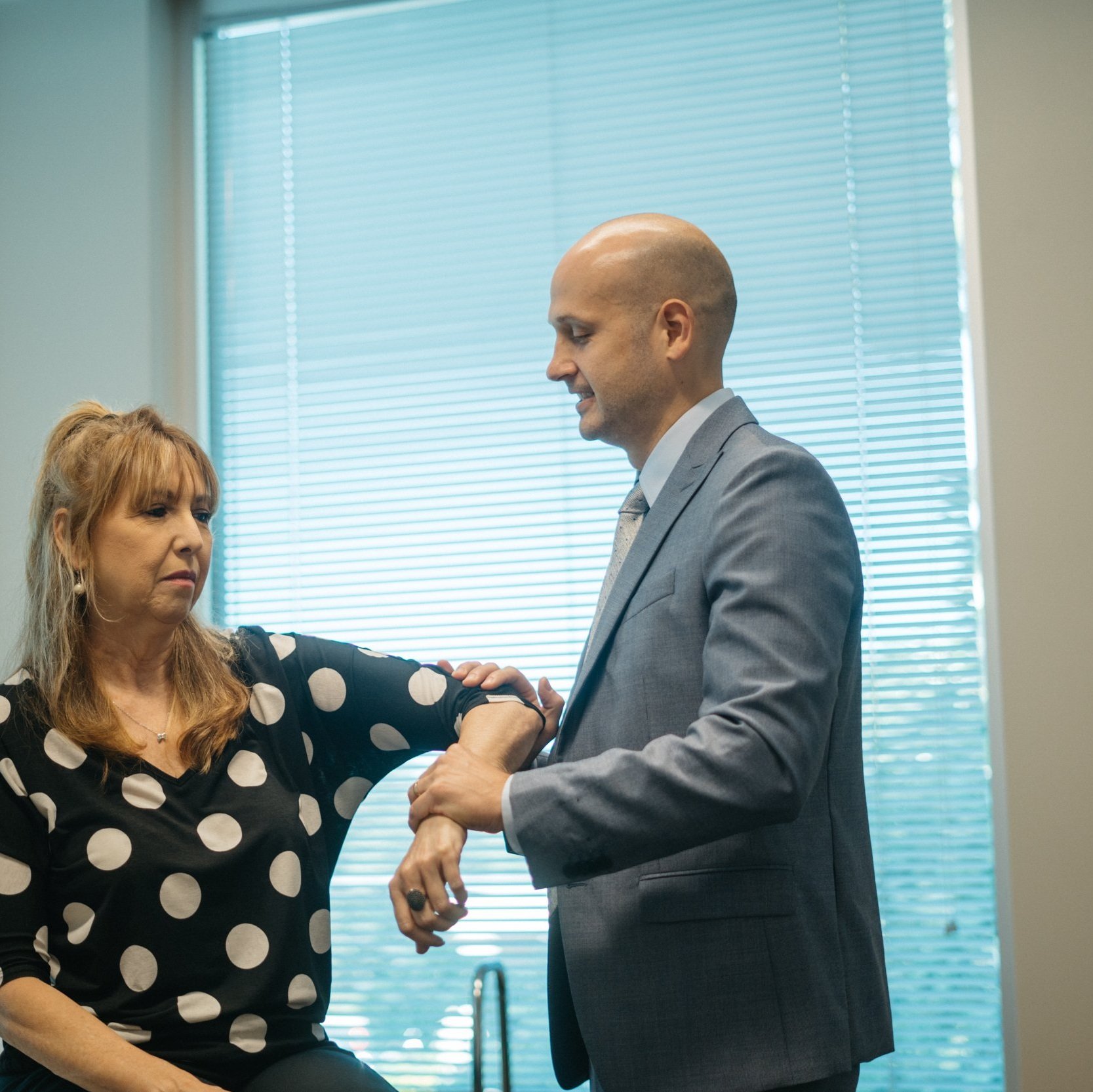The Most Common Shoulder Injury
Do you know what the most common shoulder injury is?
If you guessed rotator cuff injury, then you are correct!
What is the rotator cuff you may ask?
“The rotator cuff is actually a pretty complex structure made up of four muscles four tendons that wrap around the shoulder and allow you to move your arm around in space in a pain-free manner.”
There are several different types of rotator cuff injuries, ranging from tendinitis to actual tears. They can be small, medium, or large, and they can progress to a point where you can't raise your arm above your head.
Treating this injury really depends on your unique situation. There are the simple things and then much more agressive treeatments.
Common treatments include:
Rest: Fundamental for initial healing and recovery.
Nonsteroidal Anti-Inflammatory Medicines: Aid in reducing pain and inflammation.
Strengthening and Stretching Exercises: Crucial for maintaining and improving shoulder mobility and strength.
Ultrasound Therapy: Helps in promoting tissue repair and healing.
Corticosteroid Injection: Used for more severe cases to reduce inflammation quickly.
Surgery: Considered when other treatment methods don’t bring the desired relief.
Prevention
Prevention plays a critical role in rotator cuff health. Incorporating shoulder-strengthening exercises into regular fitness routines can significantly reduce the risk of injuries. This includes exercises that focus on the rotator cuff muscles as well as the surrounding shoulder and upper back muscles.
It's also essential to practice proper techniques in sports and activities that put stress on the shoulder. Educating oneself about the correct posture and movement patterns can prevent undue strain on the rotator cuff.
When to seek professional help
Understanding when to seek medical advice is key. If you experience persistent shoulder pain, weakness, or difficulty in performing daily activities, it's important to consult with a healthcare professional. Early diagnosis and intervention can prevent further damage and aid in a more effective recovery.
Do you want to learn more about Dr. Marx or think it’s time to come in for a consultation? Click one of the options below!




